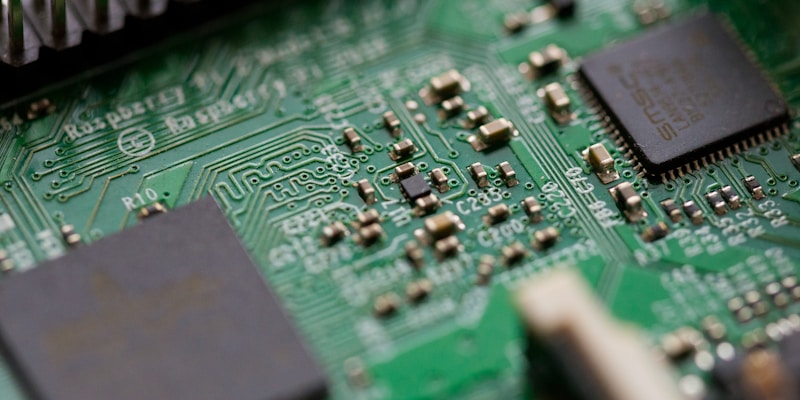Hardware-Efficient 4-Bit Multiplier for Xilinx FPGAs Achieves Minimal Resource Usage with 11 LUTs and 2.75 ns Delay

Summarize this article with:
The increasing demand for efficient processing in applications like the Internet of Things and edge computing necessitates optimising both speed and size of fundamental arithmetic circuits. Misaki Kida and Shimpei Sato, from Shinshu University, address this challenge with a new design for a 4-bit multiplier specifically tailored for Xilinx 7 series FPGAs. Their innovative approach achieves a significant reduction in hardware resources, requiring only eleven lookup tables and two carry blocks, while simultaneously improving performance by shortening the processing time. This advancement represents a crucial step towards building more powerful and energy-efficient systems for a wide range of applications demanding parallel, low-bitwidth calculations.
This research introduces a hardware-efficient and accurate 4-bit multiplier design for AMD Xilinx 7-series FPGAs, utilizing only 11 lookup tables (LUTs) and two CARRY4 blocks. By reorganizing the logic functions mapped to the LUTs, the method reduces the LUT count compared to existing designs, while also shortening the critical path. Evaluation confirms the circuit attains minimal resource usage and a critical-path delay of 2. 750ns. With the proliferation of the Internet of Things (IoT) and edge computing, there is growing demand for arithmetic circuits that deliver near-real-time, high throughput under tight budgetary constraints. Optimized 4-bit Multiplier for Xilinx FPGAs Scientists developed a highly efficient 4-bit multiplier design specifically for AMD Xilinx 7-series FPGAs, achieving a significant reduction in resource usage and latency compared to existing designs. The work centers on optimizing the fundamental building blocks within the FPGA architecture, namely lookup tables (LUTs) and dedicated carry logic. Researchers harnessed the flexibility of Xilinx LUTs, configuring them to operate in a specialized mode, realizing a 4-bit multiplier with only 11 LUTs, a reduction compared to previously published designs. This optimization directly translates to a smaller silicon footprint and increased potential for parallel processing.
The team further enhanced performance by strategically integrating CARRY4 blocks, dedicated carry logic within the FPGA slice, alongside the LUT-based implementation. These CARRY4 blocks compute carry bits with significantly lower delay than equivalent implementations using only LUTs, accelerating the multiplication process. The design leverages the hardwired connection between CARRY4 blocks in adjacent slices, enabling the creation of long carry chains without performance bottlenecks. By carefully reorganizing the logic functions mapped to the LUTs and integrating the CARRY4 blocks, scientists achieved a critical-path delay of 2. 750ns, demonstrating a substantial improvement in speed. The methodology involved direct instantiation of LUTs and CARRY4 primitives within hardware description language (HDL), allowing for precise control over the circuit’s configuration and optimization. Researchers utilized the LUT6 2 configuration, a specialized mode that enables a 5-input, 2-output function, maximizing the efficiency of the logic resources. This innovative approach to multiplier design enables denser arrays of multipliers within FPGA-based systems, particularly beneficial for demanding applications like deep neural network inference, where low-bit arithmetic is crucial for achieving high throughput and minimizing power consumption. Small 4-bit Multiplier for FPGAs Scientists have developed a new 4-bit multiplier for AMD Xilinx 7-series FPGAs that simultaneously optimizes both area and speed, achieving a remarkably small hardware footprint and low latency. The design, realized using only 11 lookup tables (LUTs) and two CARRY4 primitives, represents a significant reduction in resource usage compared to existing multipliers and those generated by automated logic synthesis tools. Evaluation confirms the multiplier attains minimal resource usage and a critical-path delay of 2. 750ns, demonstrating strong performance characteristics.
The team meticulously organized the logic functions mapped to the LUTs, enabling this reduction in complexity while maintaining accuracy. Detailed analysis reveals the proposed multiplier uses fewer resources than comparable designs, including those produced by Vivado IP, and achieves a critical path delay competitive with the fastest existing multipliers. Measurements demonstrate the multiplier’s performance, showing it requires fewer LUTs and CARRY4 units than alternative designs. Further testing confirms the multiplier’s functional correctness through exhaustive simulation across all input combinations, guaranteeing accurate computation of products. The results show the multiplier achieves a balance between area and speed, offering a compelling solution for applications requiring efficient hardware implementation of multiplication operations. This work presents a new 4-bit multiplier design for Xilinx 7-series FPGAs, achieving both reduced resource usage and low latency. By carefully reorganizing the logic functions mapped to lookup tables, the researchers implemented the multiplier using only eleven lookup tables and two CARRY4 blocks, a reduction compared to existing designs. Evaluation demonstrates the circuit attains a critical-path delay of 2. 750ns, indicating strong performance characteristics. The resulting multiplier offers a competitive advantage in applications requiring efficient hardware implementation of multiplication operations, particularly where area and speed are critical constraints.
The team acknowledges that the design is specifically tailored for Xilinx 7-series FPGAs, and further research could explore its adaptability to other FPGA architectures. 👉 More information 🗞 Hardware-Efficient Accurate 4-bit Multiplier for Xilinx 7 Series FPGAs 🧠 ArXiv: https://arxiv.org/abs/2510.21533 Tags:
